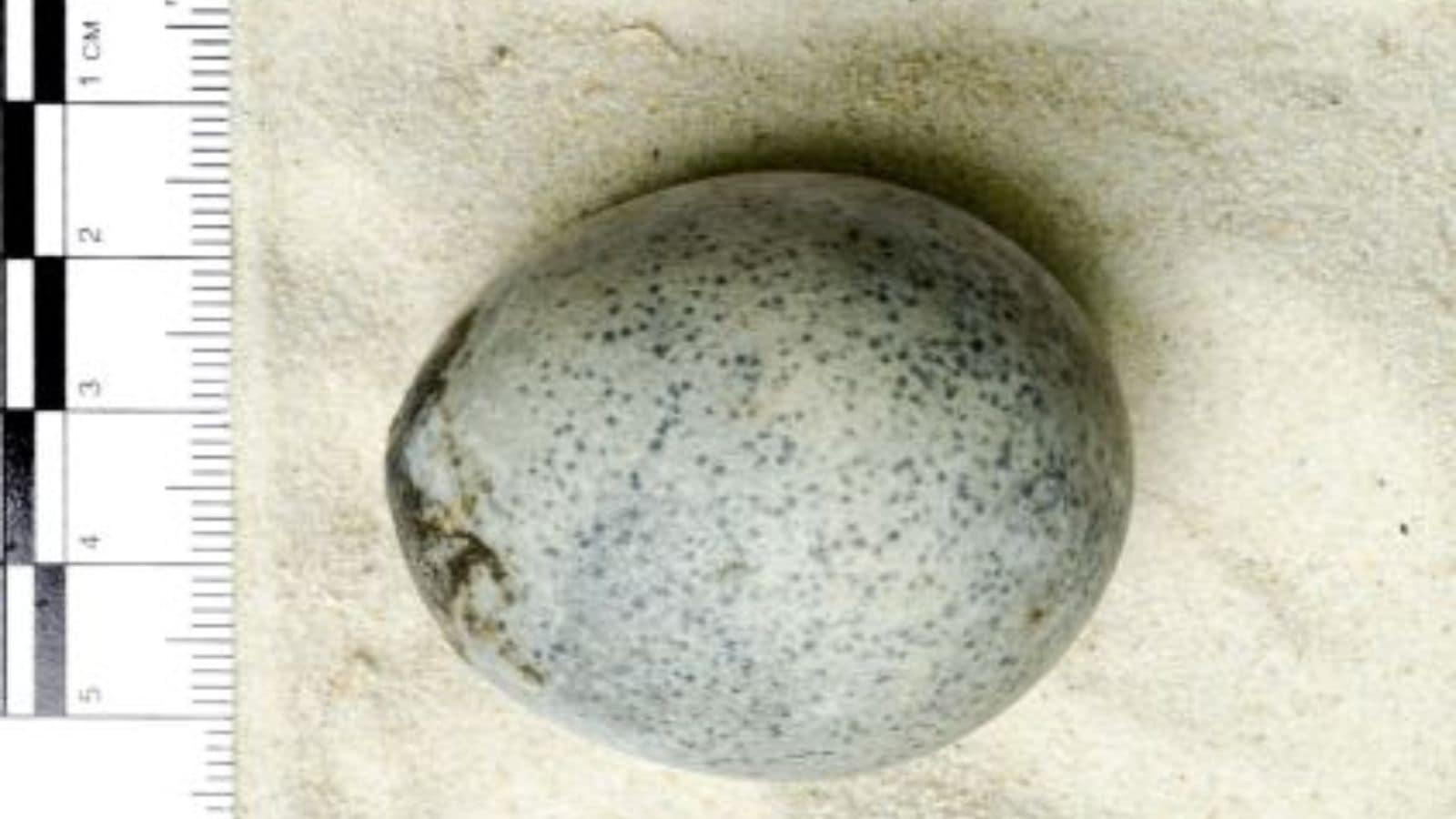1,700-year-old Roman egg found in fascinating discovery is not empty
A nearly two millenia old Roman egg found in 2010 was discovered to still contain liquid inside it.
 This egg was discovered in 2010 along with four others. (Oxford Archaeology via X.com)
This egg was discovered in 2010 along with four others. (Oxford Archaeology via X.com) Some 1,700-year-old speckled chicken eggs were discovered in a Roman pit dug up in Buckinghamshire in England but even more interestingly, a scan revealed that one of the eggs still has liquid inside it. It is believed to be a mix of yolk and egg white and could yield secrets of the bird that laid it centuries ago.
“We do often find pieces of shells but not intact eggs. The egg turned out to be even more amazing. It still contained its liquid, the yolk and the white. We might have expected it to have leached out over the centuries but it is still there. It is absolutely incredible. It may be the oldest egg of its type in the world,” said Dana Goodburn-Brown, an archaeological conservator and materials scientist to The Guardian.
According to Biddulph, the egg was intentionally placed in a pit that has been used as a well for malting and brewing. There is a possibility that the eggs were placed there as an offering as part of a vow. The researchers believe the eggs were placed there in the pit as an offering to gods after the pit stopped being used.
The egg in question was originally discovered in 2010 along with three others in Aylesbury, England, according to CNN. Three of the four eggs were discovered in one piece but two cracked once they were removed from the wet conditions that kept them well preserved, letting out a “sulphurous aroma” that is perhaps more than appropriate for eggs left rotting for nearly two millenia.
But it was not until August last year that the researchers discovered the presence of liquid in what is now known as the Aylesbury eff. A micro-CT scan was what revealed the presence of liquid. Researchers plan to carefully extract the liquid in the egg to study it better.







